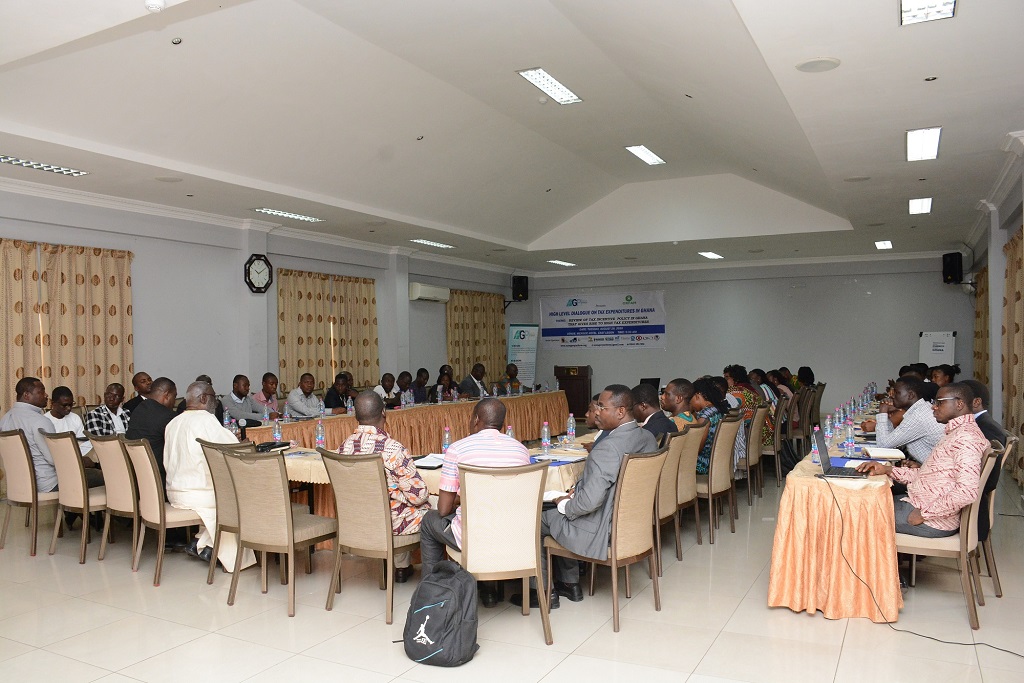Fiscal indiscipline, particularly in election years, has been a recurring annoyance in Ghana. The country unfortunately failed to recover from the wastefulness of the 2012 election year, making a 16th bailout from the IMF inevitable in 2015. The country’s previous bailouts lacked buy-in from citizens, largely because there was no space for citizens to share their views on important fiscal agreements which ultimately affected their lives.
Learning from past mistakes, eleven civil society organisations came together in November 2014 and formed the Civil Society Platform on the IMF Programme (with support from STAR-Ghana and Oxfam). The platform brings together diverse CSOs to influence and engage both the government and the IMF, ensuring citizens’ concerns are reflected in the agreement, following up with monitoring so that the government stay true to their word.
Prior to the platform’s formation, Ghana had never had a citizen initiative specifically dedicated to a serious economic intervention. The platform has been at the forefront of CSOs’ engagement with the IMF and Ghana’s government, articulating the views of ordinary citizens and putting it in a language that policymakers could associate and relate to. In this context, IDS chose the Platform as one of the case studies for the Open Society Foundations funded research on linking economic advancements in participation.
The Platform demonstrates the benefits of involving citizens in economic decision-making. Their sustained advocacy efforts led to the safe-guard of pro-poor development spending, IMF programme extension by a year as well as key structural reforms aimed at averting another need for an IMF bailout in future.

How do members participate in decision-making?
The Platform is run by a secretariat coordinated by a host member organisation, who provide finance and administrative support. The secretariat are overseen by a Steering Committee made up of representatives of 11-member organisations who meet quarterly to approve and appraise their work.
Decision-making by the Steering Committee is largely by consensus. Membership of the Platform is voluntary and has increased to 16 from the initial 11 organisations. The driving force of the Platform are its forums that bring together CSOs, academics, and other non-state actors, to agree demands, which are then communicated via the secretariat.
At the inaugural national forum (November 2014), citizens had the opportunity to input into the IMF programme design. The second national civil society forum undertook a review and dissemination of the eventual programme in June 2015, followed by three yearly assessments intended to strengthen programme implementation and performance (March, 2016, July, 2017 and June 2018). These forums ran alongside the platform’s regular interactions with the IMF during review missions.
What are the results so far?
In addition to providing a vital link between citizens and government, key advocacy wins include:
- safeguarding of pro-poor and social protection spending with the resulting fiscal space
- the passage of key structural and legal reforms such as the new Public Financial Management Act, 2016, the Amended Bank of Ghana Act, 2016
- the platform succeeded in calling for an extension of the bailout programme informed by its analysis of macroeconomic data in 2017
- institutionalised regular quarterly discussions with the IMF
- the Managing Director of the IMF, Christine Lagarde, praised the initiative and said it would serve as a model for IMF citizen engagement across the globe
What can we learn from the Platform?
There is a lot we can learn from the Platform and its operations. Primarily, the broad-based approach adopted by the platform’s secretariat was a real strength, working with diverse CSOs, academics, media and all others deemed necessary. The platform greatly benefited from the different perspectives that members and partners brought on board working together for the collective good.
Secondly, the platform is driven by data, objectivity in its analysis and recommendations. This has been key to the survival of the platform across two different governments in a very polarised political duopoly like Ghana.
Thirdly, the IMF’s willingness to engage with the Platform was a key success factor, giving it credibility and acceptability. At IMF review meetings, the Platform gave a good impression with high-quality input and the presentation of a unified front. The Platform was also trusted with sensitive information and handled it well, which helped its course.
Fourthly, key committed members of the platform sacrificed their time, efforts and regularly attended meetings, reviewed documents and provided consultancy services at minimal to no cost to keep the initiative going, even when funding for the Platform’s activities waned.
What next for the Platform and Ghana?
Despite the successful completion of the stabilisation programme with the IMF (macroeconomic stability, declining inflation, uptick in growth), the Platform recognises that Ghana faces a few challenges ahead. Upcoming elections in December 2020 carry risks of fiscal slippages and possible reversal of macroeconomic gains. Sadly, Ghana has been less successful in maintaining fiscal discipline and promoting far-reaching structural and productivity enhancing reforms. The IMF has played the role of a credible agency of fiscal restraint in the absence of the country’s own.
By diversifying and changing its name from Civil Society Platform on the IMF Programme in Ghana to Economic Governance Platform, the Platform hopes to engage with the Government of Ghana in the long-term, beyond the IMF bailout programme, to ensure fiscal responsibility is internalised for the common good of the country.
Godson Korbla Aloryito is Resident Economist and Coordinator at the Economic Governance Platform. Godson holds B.A. and MPhil degrees in Economics from the University of Ghana and currently pursuing a doctoral degree in Finance at the University of Ghana. Prior to joining the Economic Governance Platform, he worked in the Department of Economics-University of Ghana, as a Graduate Research Assistant.